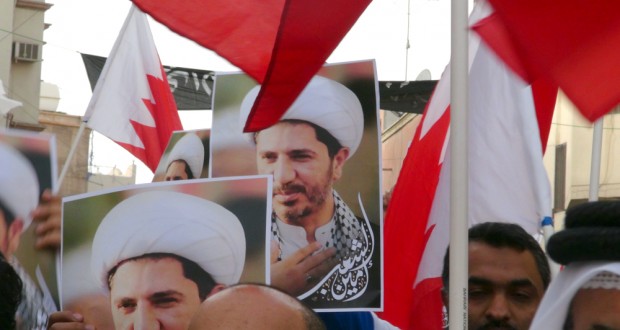(AhlulBayt News Agency) - Funding for the parliament, which critics say is a "rubber-stamping" body for the kingdom’s ruling family, was revealed in a breakdown provided under the Freedom of Information Act.
The funding, which is part of the Foreign Office's £2m "technical assistance" programme in the country, supports officials in the Council of Representatives despite internal concerns from advisers that it could be used as PR “fig leaf" over human rights concerns.
The revelation that the UK is funding the parliament comes as the Persian Gulf state reverses key rights reforms and carries out executions in the face of international condemnation.
In Westminster, political pressure has been building over the FCO's response to the executions and ongoing British support for Bahrain, and the Liberal Democrats have called for funding to Bahrain to be “stopped immediately".
Tom Brake MP, the party’s foreign affairs spokesman, told MEE: “The FCO must undertake a root and branch review to determine whether any of the UK funds invested in prisons or parliament in Bahrain are leading to greater respect for human rights.
"After the recent extrajudicial executions carried out in Bahrain, it’s looking more and more apparent that they are not and funding must be stopped immediately."
The British government is funding 11 projects in Bahrain through the Conflict, Stability and Security Fund, a controversial pot of aid money that is currently focus of an investigation by British MPs over transparency concerns.
These projects range from implementing a Criminal Justice Board and creating a social inclusion unit to a contract with Her Majesty’s Inspectorate of Prisons to build the capacity of Bahrain’s National Preventive Mechanism against torture.
The CSSF, which operates in more than 40 countries, is overseen by the National Security Council, a secretive cabinet committee including senior ministers, military chiefs and secret service heads.
Last year MPs probing the fund, which is worth more than £1bn a year, expressed frustration that Mark Lyall, the national security advisor to the prime minister, was providing scant details of how the money is spent.
During an evidence session Lyall refused to rule out granted funds from the CSSF fund to countries that use torture.
Bahrain consistently denies it uses torture and says it adheres to international norms for death penalty cases.
Unlike the majority of the aid projects in Bahrain, the funding for the Bahraini parliament comes from the FCO's Bilateral Programme Fund. Few details are known about the project, which MEE understands is still active and has received regular funding since it was first established in 2015.
Since February 14, 2011, thousands of anti-regime protesters have held numerous demonstrations in Bahrain on an almost daily basis, calling on the al-Khalifa rulers to relinquish power.
In March that year, troops from Saudi Arabia and the United Arab Emirates, themselves repressive Arab regimes, were deployed to the country to assist Manama in its crackdown on protests. Hundreds of Bahraini activists have been imprisoned and suppressed.
On June 20, Bahraini authorities stripped Sheikh Qassim of his citizenship, less than a week after suspending the al-Wefaq National Islamic Society, the country’s main opposition bloc, and dissolving the Islamic Enlightenment Institution founded by Qassim, and the opposition al-Risala Islamic Association.
Over the past few weeks, demonstrators have held sit-in protests outside Sheikh Qassim’s home to denounce his citizenship removal.
Bahrain has also sentenced Sheikh Ali Salman, another revered opposition cleric, to nine years in prison on charges of seeking regime change and collaborating with foreign powers, which he has denied.
Sheikh Salman was the secretary general of the al-Wefaq National Islamic Society, which was Bahrain’s main opposition bloc before being dissolved by the regime.
/106

